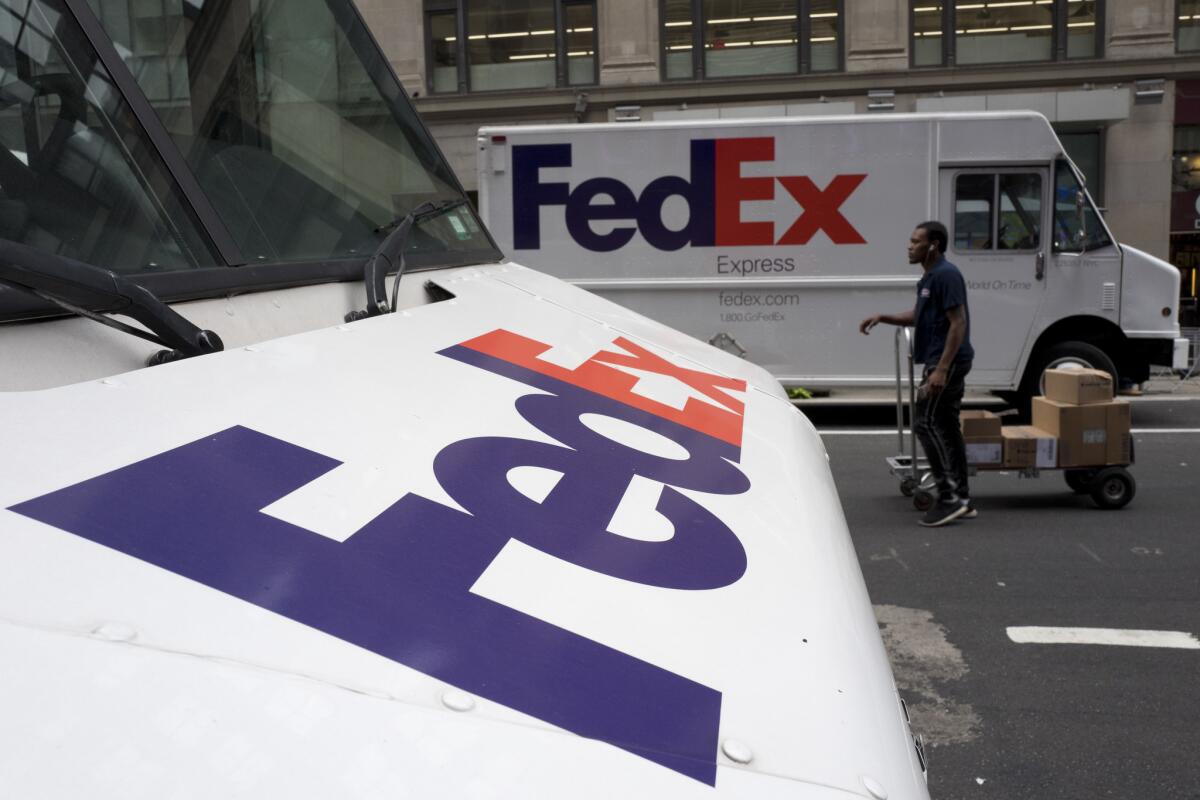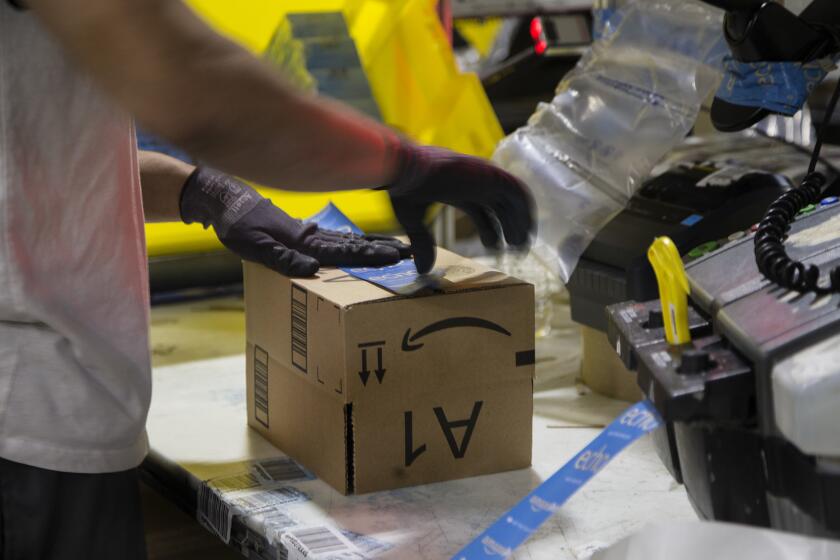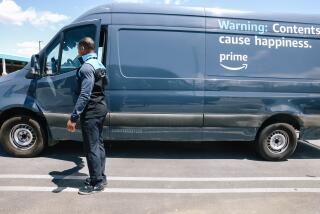Column: FedEx is freezing out Amazon. Let the delivery wars begin

FedEx Corp. seems to have finally realized that it’s futile to label Amazon.com Inc.’s delivery aspirations as a “fantastical” threat. Now it’s waging an outright war on a company it appears to increasingly view as a competitor.
FedEx won’t renew Amazon’s ground-delivery contract when the agreement expires at the end of this month, the company said in a statement Wednesday. This follows a June announcement that FedEx would cease U.S. air-delivery services for Amazon.
What’s curious is that FedEx was at pains at that time to emphasize that the “strategic decision” to curb its air-delivery relationship with Amazon didn’t affect other business units such as ground or international operations. It’s hard for me to believe that FedEx is simply finding its backbone and holding a firmer line on pricing with Amazon. The company added disclosures in its annual filing about the extent to which Amazon is developing in-house delivery capabilities that may make it a competitor. This could be an attempt to put Amazon in its place.
It reminds me a lot of the streaming wars. Just as traditional media companies were all too happy to pad sliding DVD sales with licensing fees from Netflix Inc. for years, FedEx and rival United Parcel Service Inc. have enjoyed the revenue fruits of the booming demand for e-commerce shipments ushered in by Amazon. But now, FedEx seems to be waking up to the fact that this relationship likely was never a two-way street.
Like the media companies who are pulling their content from Netflix and launching their own streaming services, FedEx appears to no longer be keen to give Amazon a valuable base on which to build a rival logistics service. The question is whether it’s too late to turn the tables on Amazon.
There are few things more important to Amazon than delivery.
While Amazon has been moving aggressively to open fulfillment centers, build up a local delivery workforce and rent cargo planes, its network isn’t quite ready for prime time. The company last month said it ended up spending more than the $800 million it had planned in the second quarter to set up one-day delivery for Prime members.
The push for speedier shipping was a “shock to the system” for its distribution and transportation network, and there had been some inventory and productivity setbacks, Chief Financial Officer Brian Olsavsky said on a call with analysts. The company also has to contend with the risk of pilot shortages and strikes at the third-party carriers it relies on to support its burgeoning air-cargo operations. Without FedEx as a backstop, the reliability of Amazon’s home-grown logistics operations will be put to a greater test.
That said, I remain unconvinced that Amazon really wants or needs to develop a network on the scale of UPS or FedEx. It’s already disrupted the way those companies do business, forcing them to spend billions to retrofit their networks to handle ever-faster delivery times for a surge in e-commerce packages. While Amazon’s logistics operations aren’t ready to stand alone, the company can still lean on UPS and the U.S. Postal Service. As FedEx itself is so quick to point out, Amazon accounts for only about 1.3% of its revenue.
FedEx can’t give up on the e-commerce game entirely, though. The company announced in May that its ground unit would begin seven-day service in January, deliver more packages that had been handed off to the postal service and invest to handle oversized packages. FedEx also signed up more dropoff and pickup points, and is even testing a ground delivery robot.
I am highly skeptical that, with Amazon as a competitor, Walmart Inc., Target Corp. or anyone else is going to be that much easier of a customer when it comes to pushing for lower pricing and faster delivery times. Much like in the battle for video streaming dominance, it seems unlikely there will be any one winner in e-commerce logistics, but there will be plenty of losers, especially when it comes to profit margins.
More to Read
Inside the business of entertainment
The Wide Shot brings you news, analysis and insights on everything from streaming wars to production — and what it all means for the future.
You may occasionally receive promotional content from the Los Angeles Times.











